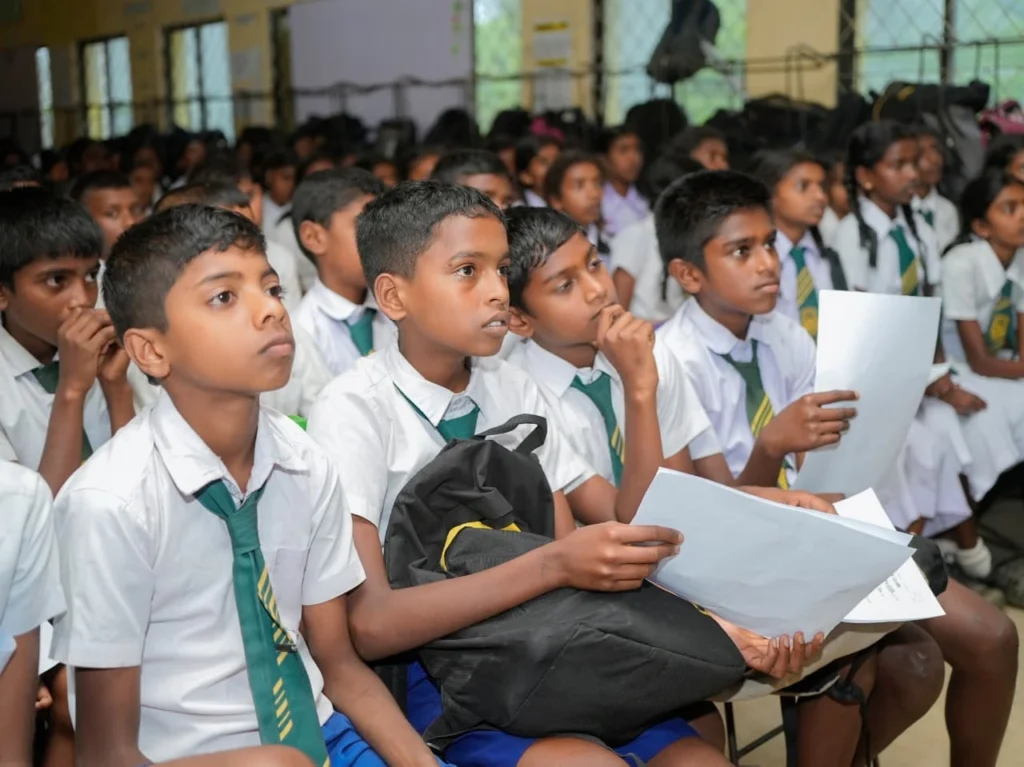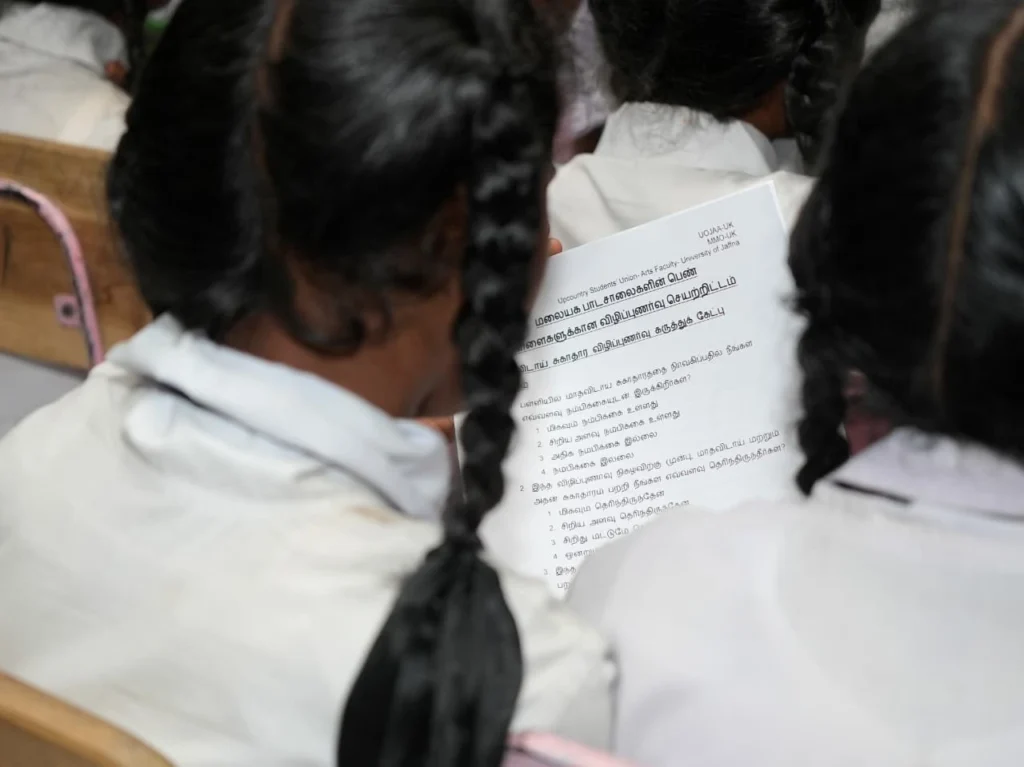
Menstruation continues to be an area out of bounds for many in Sri Lanka; as communities come together to better understand menstruation and overcome the challenges of period poverty, young women like Paramanathan Punidhaselvi are giving their time and effort generously to the effort. A final-year law student of the University of Jaffna, she is among the many young women who have joined hands with Fems in generating awareness about normalizing menstruation in schools and other communities in the North and East and the Upcountry.
“Gender equality means treating menstrual health as an everyday, normal subject.” She says, “For thousands of women across Sri Lanka, a biological process is also one that causes discomfort and prejudice.”
Punidhaselvi says that generating awareness among boys is as vital as educating the girls to manage this biological process better. “Making sure they know and understand the process is important. When we visit schools and share our message, we see how girls and boys show a keen interest in the topic.”
They recently conducted an awareness program at Great Western Tamil School in Nuwara Eliya, where both girls and boys were involved and benefitted immensely from the program.


Among communities in the North and the East and upcountry, the subject is very much isolated, she feels. Yet, the work being done by Fems as a brand is bringing awareness and shedding light on the topic in a positive way.
“Older generations still believe that washing hair and bathing during this period should be avoided. But we take the message of general good health hygiene during the time of menstruation to the community, and the girls are thus educated to be able to pay attention to personal hygiene.”
There is also the issue of superstition around menstruation, she says, where girls and young women feel pressured to follow various rituals. When they explain and share information, the girls feel relieved to know that there is nothing wrong with a simple yet vital physical process that takes place every month.
“As a community, we take the awareness to the boys and men as well. As fathers, brothers, and school mates, boys and men have a large role to play in normalizing menstruation. When we conduct these programs, they are not only educated but also understand how important it is for them to support the women and girls in their homes, schools, workplaces, and society at large in managing menstruation without any problems.”
Young girls like to take part in sports and other activities that involve a high level of physical activity. In traditionally conservative communities in the North and the East, these activities during menstruation are not always encouraged. She says that breaking taboos through awareness generation is vital for young girls to explore their talents and skills without limitations imposed by traditions.
“Menstrual health is tied to education, health, gender equality, and economic development. A girl who misses school every month because she can’t manage her period is at a disadvantage. A woman who hides pain or discomfort at work because she’s embarrassed is at a disadvantage too. Breaking this cycle starts with awareness. If schools provide access to hygiene facilities and products, if communities talk openly, and if workplaces are sensitive to menstrual needs, then girls and women can fully participate in society. This is not just about pads. It’s about dignity.” She adds.
Awareness is the foundation. Schools should include menstrual education in their curriculum for both boys and girls. Community leaders should host open discussions and campaigns to challenge myths. NGOs and private companies can support access to affordable products. Importantly, we need to make menstrual hygiene part of everyday conversation, not something whispered about behind closed doors. When girls feel supported, they thrive. And when they thrive, the entire community benefits.
We must seek to build a society where menstruation isn’t hidden or feared. Where a girl can walk into a shop and buy a pad without anyone looking at her differently. Where boys understand and support. Where every child learns that this is simply a part of life. We need to elevate our society to one that values education and health equally. Menstrual hygiene may seem like a small issue to some, but it opens doors to bigger change—equality, dignity, and opportunity. We are thankful to brands such as Fems for building conversations around menstruation,” she says in conclusion.
Menstruation is natural. Stigma is not. By challenging myths, educating communities, and including everyone in the conversation, Sri Lanka can create a future where period poverty no longer holds girls and women back.

SatynMag empowers women with inspiring stories, expert advice, and uplifting content to fuel their strength and dreams
Welcome to Satynmag S Suite, online knowledge platform for career and personal growth. This is where you can empower yourself with cutting edge knowledge, latest know-how and grow.


